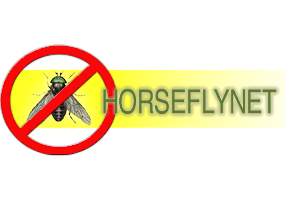-
How amusing to find the origin of words and phrases. So many that are in use have their origin in the horses and dogs that we have lived with through the centuries. Previously we wrote about the word Hound, www.horseflynet.com/blog, ‘You aint nothin’ but a Hound Dog’. Here are a few more words and phrases which refer to our favorite animals.
High Horse
Get off your high horse comes from ages past, when the steed you rode indicated your rank in society. From the donkey, used by the peasant and serf, to the Andalusian stallion of an emperor or jousting tournament competitor. So if you are pretentious and appearing better than you are, it may require pulling you off your “high horse”, even today.
Horse Power
James Watt invented the steam engine in the early 19th century. The problem was in rating its power. The only comparison in hauling power was what a pair of big draft horses could pull. If one of the horses could pull 33,000 lbs one foot in one minute than that was a unit of work which Watt called horsepower. However, a typical horse could barely raise 20,00o pounds in one minute. There lies the debate that lasted for a century as to the measurement of steam power. But, in time all engines, whether powered by electricity or gasoline stayed with the original Watt unit of pulling power, 33,000 pounds, one foot, one minute, rather than that of the ordinary nag.
Ride Herd
In the days of large cattle ranching in the US, when there were no fences or interstate highways, cattle were driven to market by cowboys. That journey could be 300 miles or more and required cooks and wagon drivers who worked early morning to dusk at their jobs. However, those on horse back had a twenty-four hour day to head off stampedes and to keep the herd together. Their job was described as, Ride Herd.
Whoa
Whoa is a word used to stop or slowdown horses. The dialectal variant of 1615-25 was ho. More recently about the 1980s there has been yet another variant in use, for an indication of surprise or delight. However, horseman across America today still regularly use the command whoa to halt their mount.
Pony Up
A Pony is of course a small horse and the term has been in use since the mid-1600. Pony up is very much an American phrase and means paying money that is past due or coughing up the money. It is rarely used in the UK. But, the Brits and Americans do have some good slang meanings for the word pony:
a small measure of alcohol, a short crib sheet or study aid, British slang for twenty five pounds, an abridged news report
We can turn back to Psalms 119, for a mention of ‘ legem pone’ , to pay money or settle debts. This is traditionally recognized on March 25 and has been recorded as early as 1570 when debts should be paid.
Horseplay
Since the 16th Century the rough play of stallions and gentle romping of mares has been compared with boisterous behavior of humans. In centuries past not all beasts of burden such as the donkey or nag felt the need to be frisky, roll on their backs or nuzzle each other. So the rarely seen qualities of health and spirit in some horses have always been noted. The high spirits of people, especially children, even today are labelled horseplay.
Sources: Why You Say It by Garrison www.thephrasefinder.com
Copy write: www.horseflynet.com/blog
‘Get off your high horse’
Call Us at (910) 725-2115 or Email Us at info@horseflynet.com
Horse Fly Net
This see-through breathable screen will last for years. It is made of polyester vinyl coated and heat sealed on the edges with brass grommets about every foot. It has no chemicals added. Our HorseFlyNets only cost approximately $2.00 a square foot for smaller sizes and less for larger. Our product is woven and manufactured in the USA.
HorseFlyNet®
Southern Pines, NC
(910) 725-2115
info@horseflynet.com
